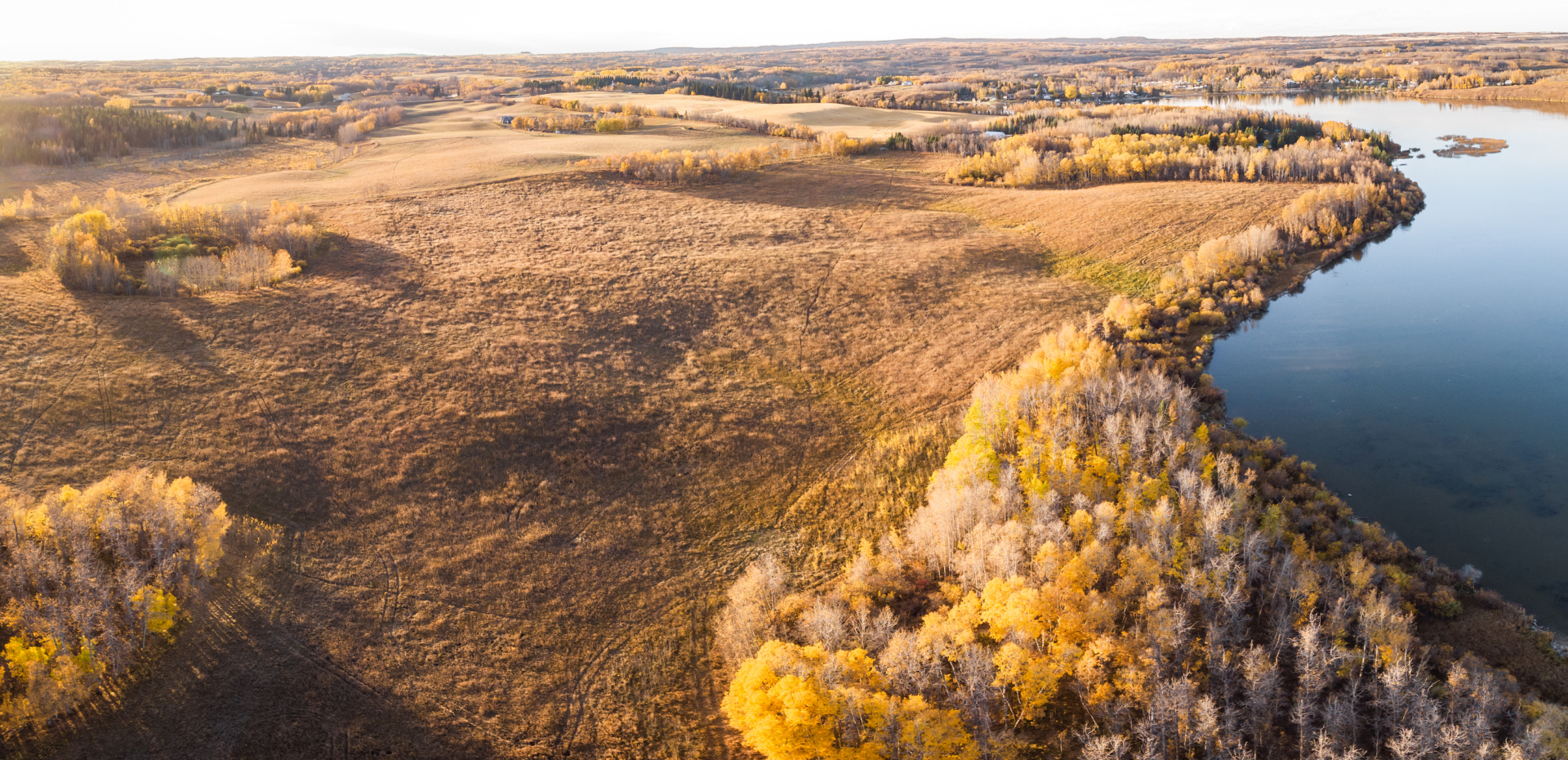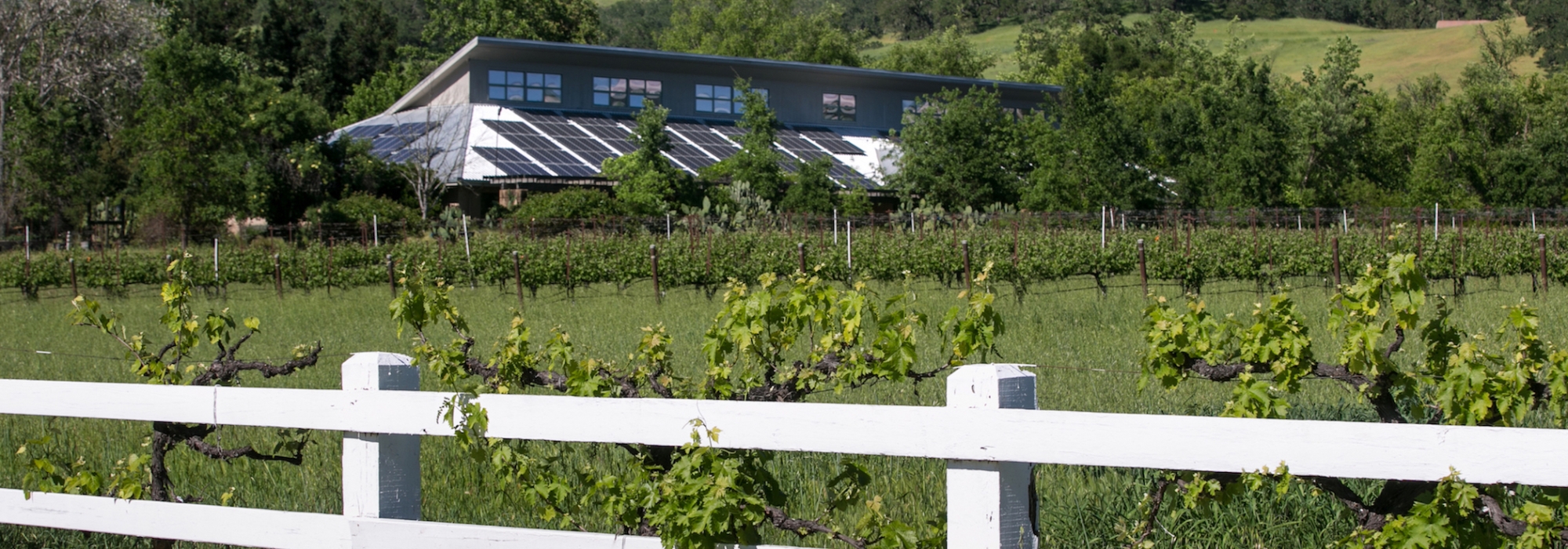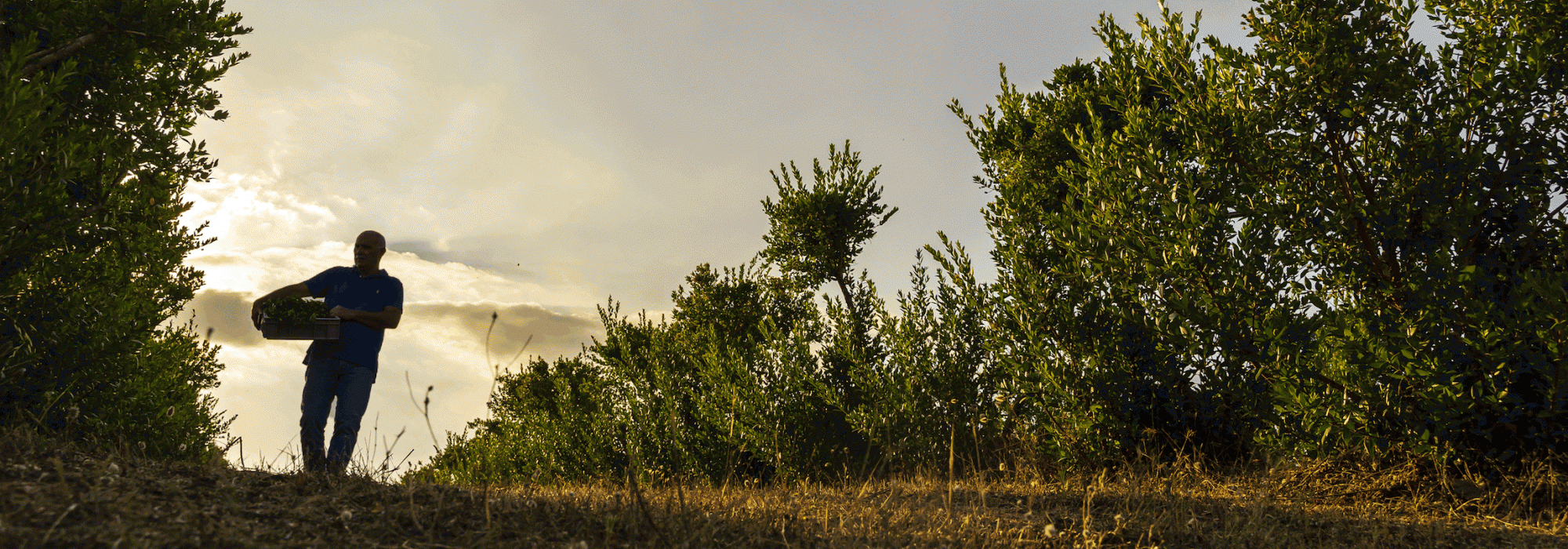Collective Business Climate Action to Support Reforestation
April 6, 2022
U.S. and Canadian B Corps Tackle Deforestation Through Advocacy and Group Initiatives
The loss of trees around the world — whether for business use or from wildfires — and their carbon-storage role is a growing contributor to climate change and its escalating impacts. As huge tracts of forests are cleared to make way for farms producing crops and cattle, deforestation is responsible for 15% of global greenhouse gas emissions. Amid growing awareness of the effects of this loss — rising temperature, extreme weather, and other ecological impacts — Certified B Corporations are tapping into the collective nature of the community to help businesses raise awareness of the effects of deforestation and take business climate action to protect forests and other natural areas.
Some of these businesses offer climate mitigation services and practices, while others are in industries that historically have been part of the problem. B The Change looked into examples of cross-sector collective business climate action, including two reforestation projects involving B Corps:
- The first example is led by Wild + Pine, an Edmonton-based B Corp built around the region’s polarized intersection of nature and energy. Founder and CEO Chris Kallal and his team are partnering with other Canadian B Corps to protect forests and develop more diverse ecosystems through a project called Forest B.
- The second is a U.S. policy advocacy movement initiated in part by Tony’s Chocolonely to support passage of the Fostering Overseas Rule of Law and Environmentally Sound Trade (FOREST) Act.
Collaborations like these allow small businesses — especially those unsure how to start their climate action — to be involved in larger, more impactful environmental projects. “There are a lot of different pathways and solutions that can be overwhelming and confusing,” Kallal says. “You don’t need all the costly steps. There’s no need to mimic what big business is doing. Any kind of environmental or sustainable action is good.”

Subscribe to B The Change Weekly
Learn more about this growing movement of Certified B Corporations using business as a force for good, and sign up to receive the B The Change Weekly newsletter for more stories like this one, delivered straight to your inbox once a week.
Amplifying the Power of Small Businesses in Climate Impact Strategies
While Wild + Pine initially focused on restoring abandoned oil and gas facilities and oil sands sites to forests, its operations have evolved to provide broader reforestation services. “Over time, we saw a growing need for tree seedlings,” Kallal says. “Four years ago we began developing our Bioprism Advanced Vertical Greenhouse — the first of its kind — a fully artificial greenhouse that produces native plants, trees, and shrubs. It’s quite a novel innovation, but it’s needed because here in Canada we have our 2 Billion Trees Commitment.”
As a nature-based climate action company, Wild + Pine plants trees on underutilized areas and converts them into fully functioning forests, he says. This helps its clients and partners earn verified and transparent carbon offsets that they can use to meet climate goals.
By broadening the focus to help other companies address the climate crisis, Kallal says, Wild + Pine in turn, has expanded its focus to develop and deliver solutions where people in industry and carbon interact. “It’s a really interesting pathway and business to be in right now as small and large businesses and government are adapting and trying to find the right solutions for the environment and the economy,” he says.
As a small company, Wild + Pine has the advantage of being more agile and nimble, traits that allow it to explore new ideas and partnerships with clients that include some of North America’s largest businesses. “The value we provide is that ability to pivot and take in new technology, test and develop, then bring that solution to a larger organization,” he says. “We serve a niche marketplace, and every single year that need is compounding. The power of small business has never been greater.”
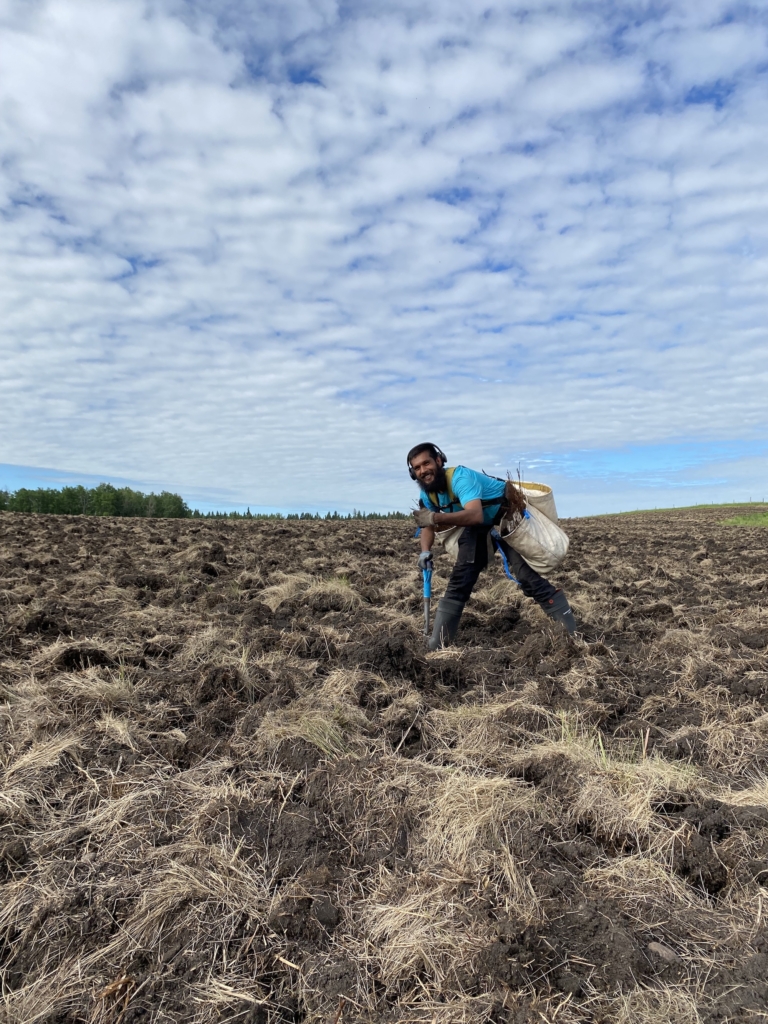
With approximately 25 hectares of formerly agricultural land restored, Wild + Pine prepared a plan for the Forest B site that called for approximately 57,000 tree seedlings. (Photo courtesy Wild + Pine)
Innovating and Leading Business Climate Action with Canadian B Corps
In valuing the power of innovation and collaboration, Kallal came to know and admire companies in the B Corp community, and eventually joined them in 2021. While pursuing B Corp Certification, Wild + Pine worked with Vancouver-based B Corp Decade Impact on a plan to launch a collective nature-based restoration project in Canada. “We knew that B Corps are leaders in their everyday business and wanted to highlight the strength and leadership,” Kallal says. “When we would go to B Corps and ask, ‘Are you ready to support this?’ the response was instant.”
Forest B was launched in 2021 with 33 Canadian B Corps and thus far has led to the planting of 52,000 trees on sites in partnership with the Natural Conservancy in Canada, with another 5,000 trees in the works. The project is designed to go beyond reforestation by developing diverse ecosystems to support native plants and animals.
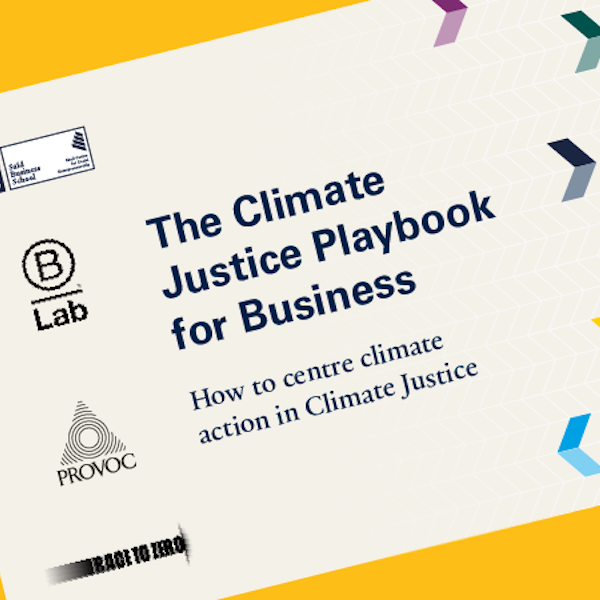
The Climate Justice Playbook for Business
This practical guide from B Lab features information to help business leaders understand the intersection of climate action and social justice and advance a justice-centered approach to climate action.
Companies in the B Corp community are already stepping up and taking risks as innovative business leaders that have shown their commitment to community and other stakeholders through the B Impact Assessment, Kallal says. “We’re nimble and agile — and yes, we’re going to do this,” he says. “So much is at stake — climate, racial injustice — so many important things that need action. We can’t take months, we can’t take it to the board and vote on it and have a plan the year later.”
Kallal says small businesses are uniquely positioned to act when there is a cause and a call to action. “They step up to the plate right now,” he says, noting that 97% of Canadian employers are small businesses. “That represents a huge portion of the population. These are small clusters of communities that really care about what they do.”
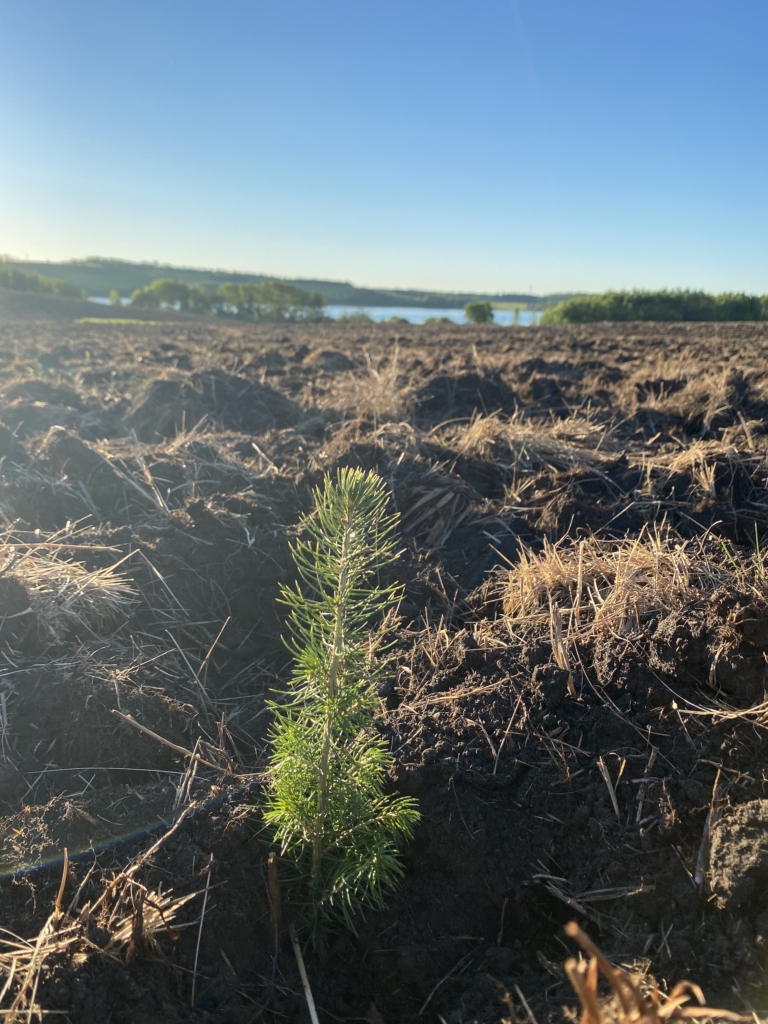
Through the Forest B project, 52,000 trees and shrubs were planted in 2021 and another 5,000 will be planted in 2022. (Photo courtesy Wild + Pine)
By connecting with their communities and building inspiration, small companies in the B Corp community can build a movement. Small business leaders who are considering how they can take steps to address the climate crisis often face a lot of options and aren’t sure where to start, and Kallal says simple and accessible changes often can create a path to greater action.
“There are a lot of different pathways and solutions that can be overwhelming and confusing,” Kallal says. “You don’t need all the costly steps. There’s no need to mimic what big business is doing. Any kind of environmental or sustainable action is good. If you know that planting a tree is good, switching to an electric vehicle is good, trust in that.”
At Wild + Pine, Kallal and his team have developed a focus on issues and products most important to them, and in turn, have helped drive others to act. “That’s the power of the small business. We know that we’re good at building technology and being inspiring leaders,” he says. “When a small business is intentional and deliberate, that’s going to inspire the community and inspire their neighbor to do the same. Impact is really going to grow.”
Advocating for Policy to Address Climate Change
In the United States, B Corp Tony’s Chocolonely is leading an effort to support a federal bill that would bar the import of products connected to deforestation, one of two social impact areas of focus for the company.
“From the public policy perspective, Tony’s Chocolonely cares very much about two things: human rights, including eliminating illegal labor in supply chains, and deforestation,” says Barry Schumacher of Tony’s Chocolonely. “We ensure that farmers who supply us don’t engage in deforestation by both paying them more for their cocoa so they can achieve a living income, and by mapping boundaries of their farms and providing technical assistance if they have strayed. We also engage in reforestation.”
Awareness of deforestation and its responsibility for climate change is growing around the world, Schumacher says, as well as the fact that what happens in one region of the world has potential long-term impacts for all of us. While businesses are increasingly stepping up to address their environmental impacts, it’s also important for government leaders to take steps that limit practices contributing to climate change, he says.
The FOREST Act has been introduced into the U.S. Senate and House, and hearings may be held this summer. The bill would get at the root of the issue by barring the import of certain products grown on land that was illegally deforested, unless a verifiable supply chain due diligence system is in place that ensures inputs are not from illegally deforested areas. The covered products — soybeans, cattle, rubber, palm oil, pulp (for paper), and cocoa — are used by a variety of industries, which was one reason why Tony’s Chocolonely turned to the B Corp community to seek fellow advocates.
Other B Corps supporting the bill so far include The Body Shop, Patagonia, Seventh Generation, Dr. Bronner’s, and Yin Yang Naturals, which have agreed to reach out to the members of Congress and encourage them to support the bill. Tony’s Chocolonely also is tapping into its College Changemakers networks to build awareness and advocacy among students.
On a more global scale, Schumacher says similar, stricter deforestation regulations are moving forward in the European Union that would cover imports from anywhere, which could affect U.S. companies positively or negatively, depending on their supply chain practices. “That provides an opportunity for companies in the B Corp community, and could create an export market for their goods,” he says.
Sign Up for our B The Change Newsletter
Read stories on the B Corp Movement and people using business as a force for good. The B The Change Newsletter is sent weekly.
